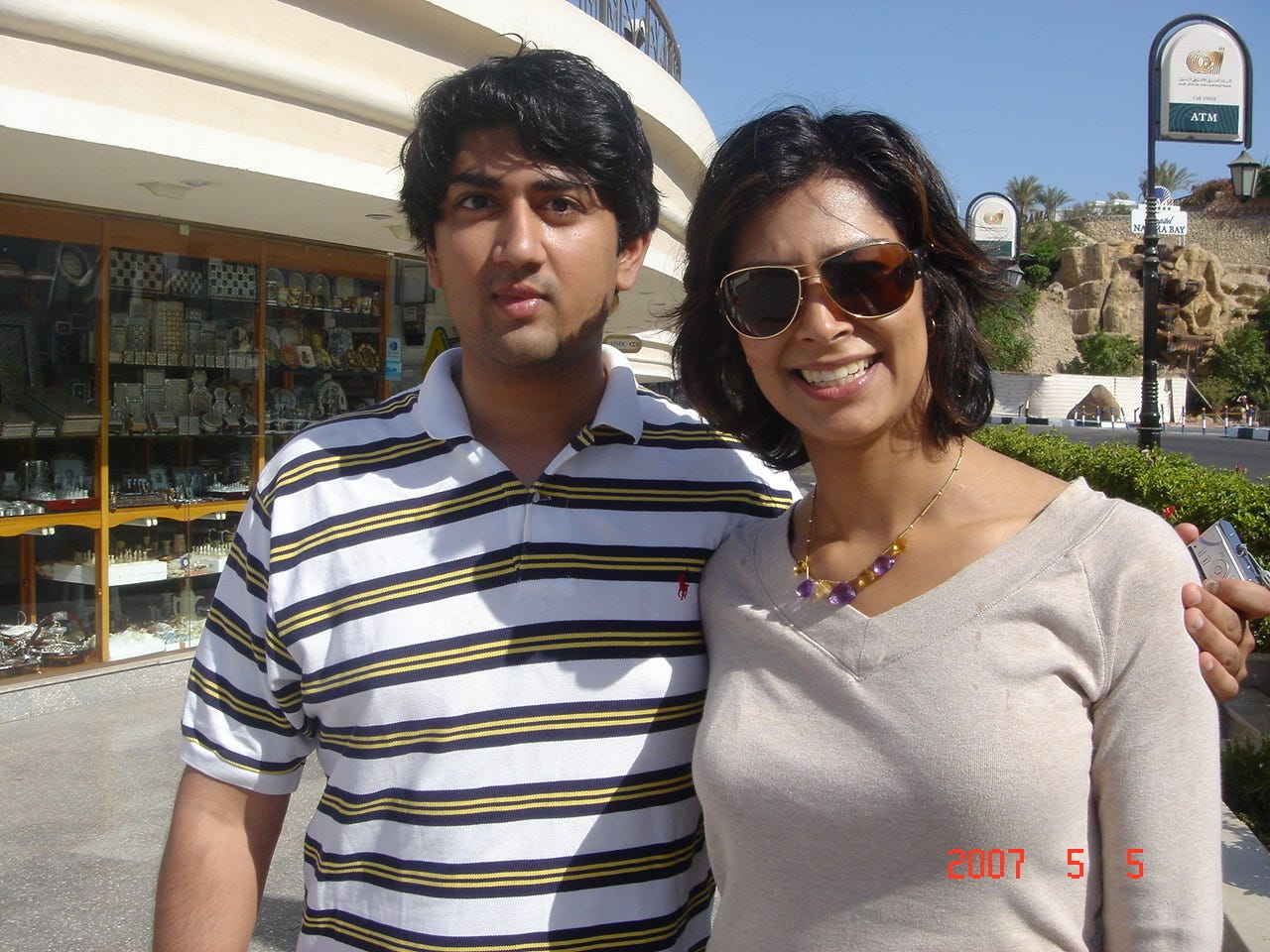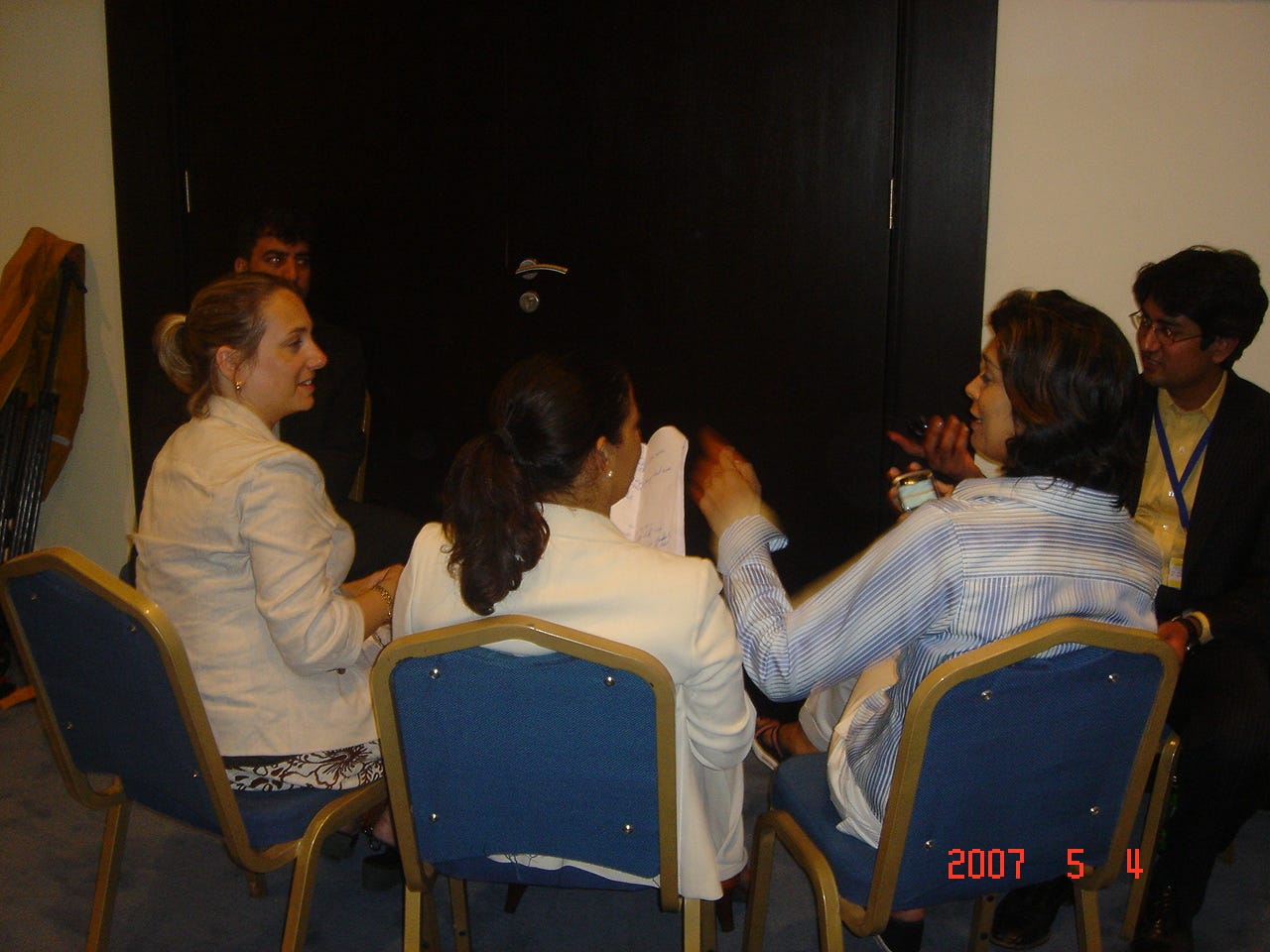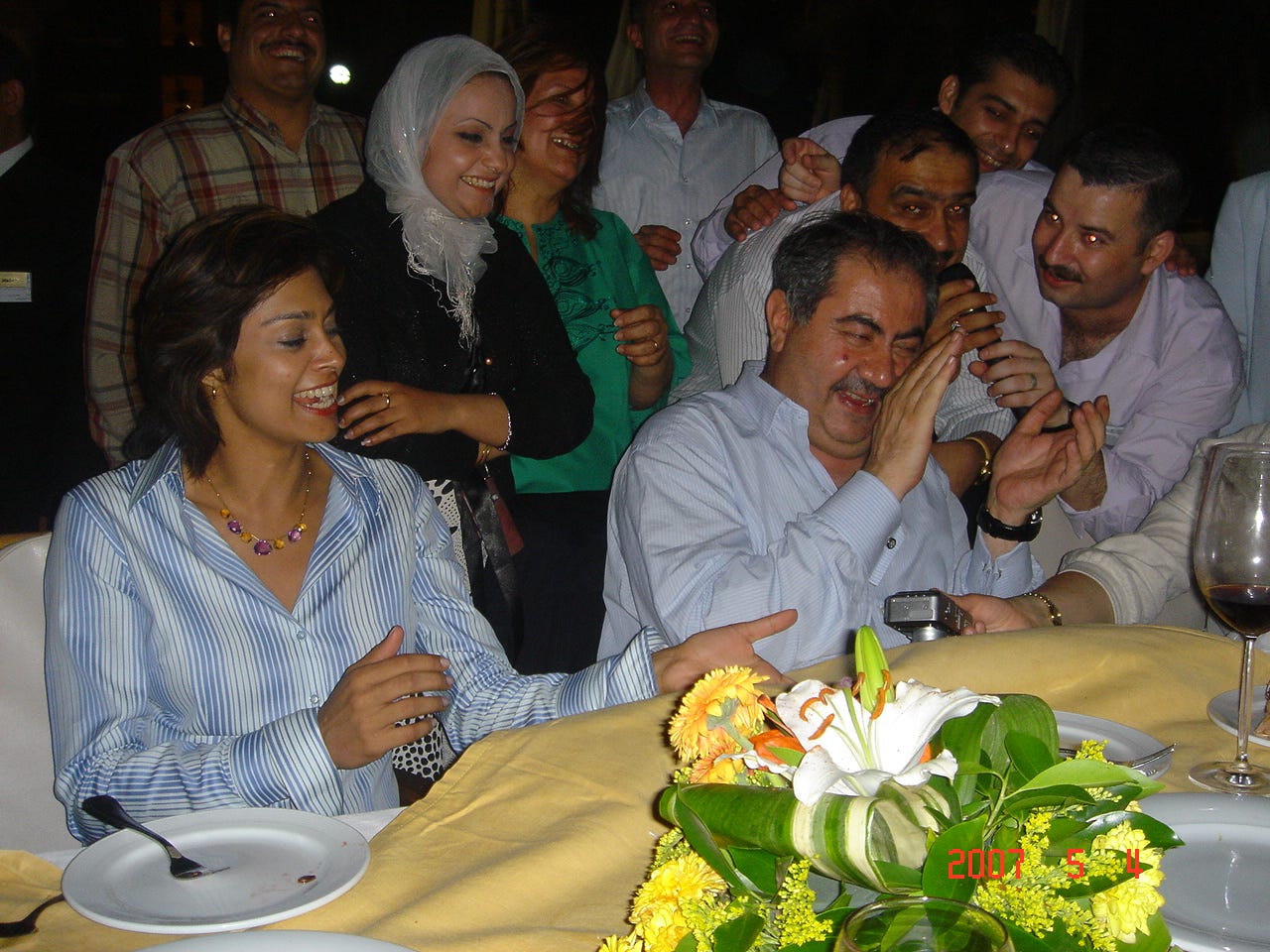Pro-human: Aneesh Raman wants you to double down on being human
Human First. Linked In's Chief Economic Opportunity Officer on the skills and approach to jobs we need to be thinking about.
The Rundown team is building out our Pressmate product which is in beta. Please contact us if you’d like to try it.
We are working out how large organizations with many departments, that have their own comms teams, can use various AI powered pressrooms, with a view to create a wholistic view for comms leads and executives. Thomas, my co.founder, is designing the UI / UX for this at the moment.
There’s been so much focus on the machine this year, I wanted us to spend a little more time on this Substack thinking about, the human, you. What we uniquely have that AI does not.
Empathy
Critical thinking
Compassion
Relationships
Inspiration
Groq AI
Here’s how the super-fast crazy-mega-speed Groq answered my prompt about what qualities humans have that AI does not.
As a machine, I can process vast amounts of information, recognize patterns, and generate human-like responses. However, there are certain human traits that I can never truly possess. Here are the top human traits that I, as a machine, can never have:
Creativity: While I can generate text, music, or art based on patterns and algorithms, I lack the ability to truly create something original and innovative. Creativity is a uniquely human trait that requires a deep understanding of context, emotions, and intuition, which are difficult to replicate with machine learning.
Empathy: Empathy is the ability to understand and share the feelings of others. While I can recognize and respond to emotional cues, I don't truly experience emotions myself. I can't understand the depth and complexity of human emotions, and I can't form emotional connections with humans in the same way that humans do with each other.
Consciousness: Consciousness is the state of being aware of one's surroundings, thoughts, and emotions. While I can process and respond to vast amounts of information, I don't possess consciousness in the same way that humans do. I don't have subjective experiences, self-awareness, or the ability to make decisions based on my own desires and intentions.
Well said Groq!
One Awe-Inspiring Human
Simone Biles. Just. Wow. Watch.
Screengrab
Human First
So let’s have a week of being human on The Rundown. I want to focus on what I can uniquely do, with my own softer skills, sans machines or GPTs. In an AI world, those sorts of skill sets will have significantly greater value.
As we double down on being human, I can think of no better person to have this conversation with than my old CNN colleague and friend, Aneesh Raman, who I admire so much.
Brussels 2007 (skinny)
Aneesh was an outstanding and much loved correspondent at CNN, and covered tough assignments like Iraq and Syria. After being a war correspondent at CNN he joined the Obama Election Campaign, then worked as President Obama’s speech writer, joined Meta, became the Senior Economic Advisor to California Governor Gavin Newsom and now is the Chief Opportunity officer at Linked In. He wrote about his experience as the first Indian-American Presidential Speechwriter in West Wingers: Stories from the Dream Chasers,
I have a vivid recollection of meeting Aneesh at an Iraq conference in Brussels in 2007 when I was a journalist covering Condi Rice and the State Department for CNN.
Doorstepping. Waiting for a meeting on Iraq to finish w Aneesh and the press corps
After this photo, and after we filed our stories, we had the best evening ever, a lifetime stand-out dinner with the Iraqi Foreign Minister and his team and us journalists. There may have been a lot of singing and dancing… in spite of tough times.
A very late and memorable night
Pro-Human
Today, at a major inflection point in the world with the advent of Gen AI, Aneesh has emerged as a force on being pro-human. His new role as the Chief Economic Opportunity Officer at Linked In gives him visibility and insights on how we should be thinking of future jobs, our own skill sets and what leaders need to be doing when considering talent.
He co-wrote a great piece in the New York Times which lays out what the jobs, economy, and workplace of the (near) future could look like. You can check it out here.
People skills are going to become more valuable and jobs will shift to being more human-centered.
On the flip side, many technical and data skills (coding, engineering, etc) that have been highly valued for decades could become less important as AI gets better at doing these functions.
They describe this as shifting from a “knowledge economy” to a “relationship economy”, where social abilities and interpersonal skills will be at core.
The Relationship Economy
According to Aneesh, employers and institutions have to realize the old way of matching skills with jobs is now obsolete. It has to be skills first, we have to look beyond the regular job and degree titles to create what Aneesh calls a ‘relationship economy.’
How leaders judge someone for a role is going to completely change. Focus should be on all the personal, technical, creative, etc skills that fit best for the job, and not the polished degree from the great university.
AI is also a great tool to push through change and build new systems that can better assess and track people's skills, and place them in the best possible roles.
Here’s Aneesh on future consideration of skills in the first installment of Human First. There’s a transcript below for your ease.
Aneesh Raman, Chief Economic Opportunity Officer, Linked In
Transcript
Summary Keywords: systems, year, degree, ai, organizational design, labor market, propelling, industrial revolutions, employability, organizational psychology, build, work, educational institutions, college, employers, change, human history, unequal
00:00
Most of my job right now is working with employers and CEOs, CHROs and and chief people, officers mainly to get them to realize that there is no going back. Every playbook of old is done. You cannot copy and paste job descriptions year over year, you cannot look for the same pedigree signals of Do you have the job title I'm hiring for already? Do you have the degree from the right place already? So the good news for the labor market is that all the things that entrenched in equity and a lack of dynamism are not going to survive.
The labor market has never done a good job of matching talent and opportunity. For most of human history, we literally inherited work from our parents like the genes that determine our height that is wildly inefficient, wildly unequal, it's only been a few 100 years where industrial revolutions have created all these new ways of work. And we've said, Okay, educational institutions, high school and college, you're on first you will be the mechanism of mobility. Anyone from anywhere can go get that degree and go and be and do anything that's had tremendous challenge, cost of college durability of degree employability of curriculum, but it's all held together, because the world of work was stable enough and changing slowly enough that everyone could still play by the old rules.
AI is up ending all of that. Everyone's got to reset systems. So employers are at the core of that. Think skills. First, it starts with just the questions you ask how you think about judging expertise, pushing hiring managers to look beyond job title. And to look beyond degree where people got a degree, whether they've got one, it's starting, I would say, for the average person, you're probably two or three years out from feeling in your day to day, maybe less, but I don't think longer because it's all going to play out pretty quickly. But I will tell you from the conversations I'm having with the humans behind the systems of employment, education and entrepreneurship, the change is coming. And now the big question for them is the how, how do I build the systems which is organizational design, organizational psychology.
I'll end with this: AI is two things.
It is a force for change, propelling us into this relationship economy.
But it is also a tool for change, a thing we can use to build the new system.
So when we talk about building a way to easily credential and track skills, AI is going to help us do that alongside being the reason we have to do it.
Embedded
The Rundown is working on a podcast series called Embedded to be released in the coming months. My full conversation with Aneesh will be featured here. Stay tuned.
Please do support our small team with a paid subscription. $8 a month. We would be so appreciative as it helps keep the lights on and allows us to bootstrap.








